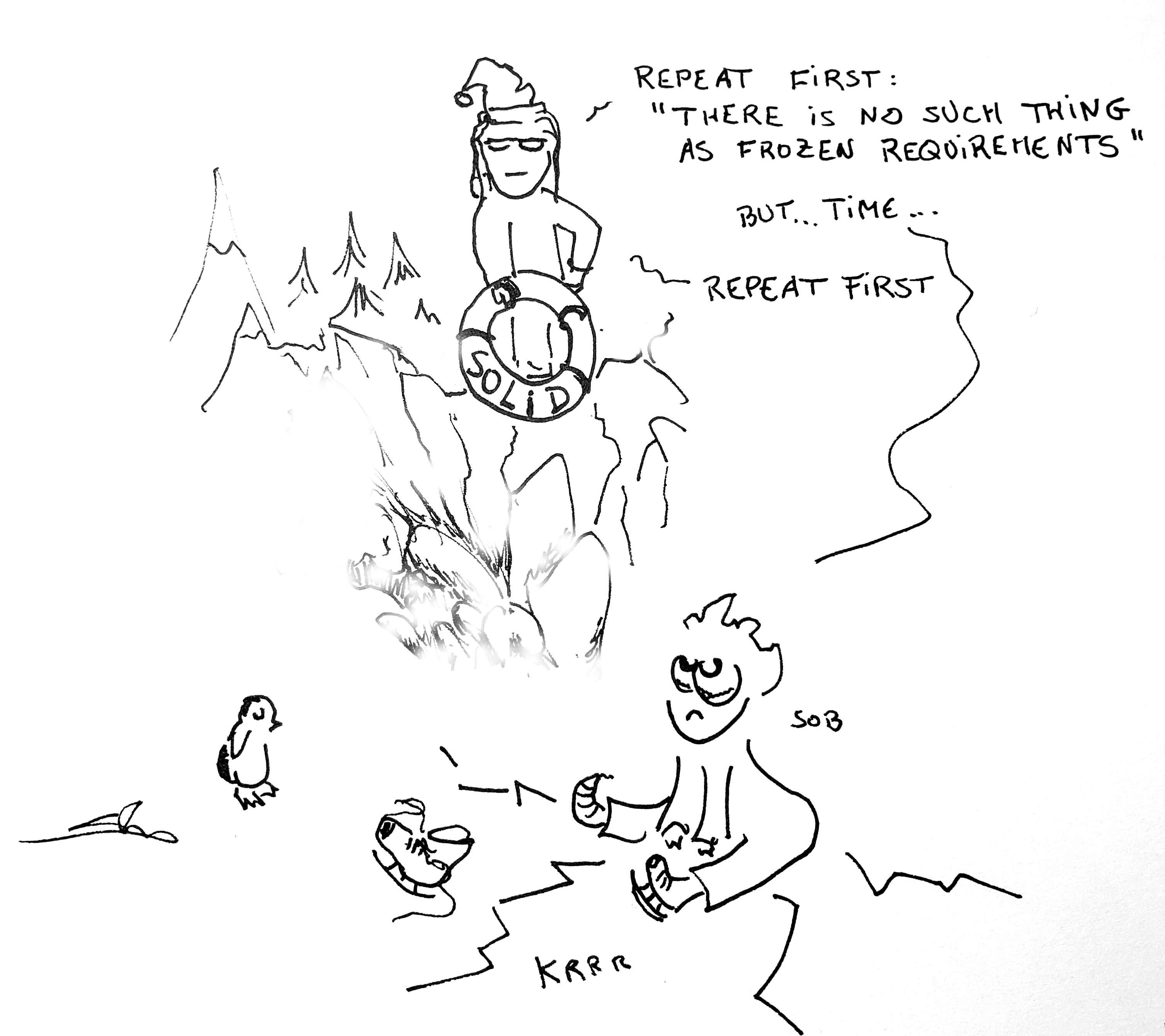
How to write very SOLID code
One promise of Computational Biology is to develop reliable software of interest for a wide range of biological problems. But often in biology, each new problem is a bit different than the previous one, existing code has to evolve for various possible reasons: to adapt to this new biological material, to integrate this new super-fast algorithm, or to scale performances with this huuuuge dataset. It is safe to say that in science, like in industry, requirements do and will change at some point. But as soon as they do, the code has to adapt or it becomes outdated. And S.O.L.I.D. can help you!
They are the set of common sense guidelines we need
Because updating code is (very) costly, changes in code requirements can cause the death of code bases that do not allow an easy integration of new and required extensions.
Rigid and outdated scientific code is dead code. Well-designed outdated code has at least a chance to survive by being updated.
Writing robust code has been widely discussed by software engineers in industry within the last decades. They have honed in on the principles of writing robust code: S.O.L.I.D. As scientists who write code, we need to be aware of these solutions.
S.O.L.I.D is an acronym for five core principles in object-oriented programming, largely considered as one of the most important acronyms in object-oriented design.
They have been initially identified by Robert Martin in the late 1990s as pivotal to design sound code using classes. Together, they allow developers to identify problems more clearly and to reason and communicate their intuition regarding clean or bad code.
When an application demonstrates symptoms of bad design (the code is hard to modify, hard to test, hard to fix, breaks everywhere all the time… yeah we’ve all been there), we generally have an intuition of the root of the problem:
- Oh man, this class too big, I cannot understand how it works!
- This code base is a total mess of interdependent modules, it’s impossible to debug!
- Why the hell should I modify your source code to add my new feature? I don’t have time to understand your code!
Yet we often don’t know how to act, as we don’t know how formalize these intuitions into a set of core rules that should be respected to make the code more robust. SOLID does exactly that for us.
When my code is hard to work with, it generally turns out that I violated several of these principles. Oopsie. But if I refactore the code to respect these principles, I generally feel much better about the code. I can understand it, isolate it, test it, update it.
The Five Principles
- S - Single Responsibility Principle, or S.R.P. Each class should do just one thing, but do it well.
- O - Open/Closed Principle: The code should be open to extensions, but closed to modifications
- L - Liskov Substitution Principle: If B is a sub-type of A, then it should be possible to replace any instance of A by an instance of B without ruining everything.
- I - Interface Segregation Principle: No code should depend on methods that it does not use.
-
D - Dependency Inversion Principle We should depend on abstractions, not implementations.
These principles can seem a bit abstract at first and I don’t think it worthwhile to spend days in trying to fully understand them theoretically (I personally still struggle to understand the implications of the Dependency Inversion Principle).
But we should be aware of the core ideas SOLID expresses, so when faced with issues in our code we can analyze and react:
“Oh, this mess is just me ignoring the Single Responsibility Principle again! Let’s refactor the code to break down complexity and be able to commit a bug fix!”
Does it work?
There is no formal proof that these principles actually work, but accumulated experience within the developers community (including my own) shows that, better design and less problems result from writing code that respect S.O.L.I.D. principles.
Consequently, these are absolute rules to follow at any cost, but are rather meant as good advice and practical heuristics:
They are common-sense solutions to common problems. They are common-sense disciplines that can help you stay out of trouble. Martin, 2009
When an entire scientific community has achieved consensus on a solution, as researchers we can perhaps give them some credence.
The Don’t-Get-Into-Trouble-Todo-List
If you want to stay out of trouble and keep control of your code, I would advise to:
- First, learn the SOLID principles. Try to build at least an intuition of the problem/solution they describe. We are half programmers, and SOLID is a basics of programming.
- Next, learn to identify the moments when you are in difficulty and the reasons why: does your code suffer from bad-design symptoms? Is it rigid? fragile?
- Try to link your problems and your gut feelings to a SOLID principle.
- Plan the refactoring to fix your problem: for example if the D.I.P is not respected, divide this big ugly mammoth class into several smaller independent ones.
- Ask for help: the online communities can be super helpful as you refactor code at minimal cost. And, exchanges on these platforms can build your programming confidence and help you make informed decisions!
- Trust yourself: if you don’t think respecting SOLID is the best way to go, that’s okay. Don’t get discouraged!